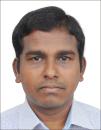
Leaderboard Ad

Year:
-
Grants:
Judith Graham Pool Postdoctoral Research Fellowship
Hemophilia B (Factor IX/F9)

National Hemophilia Foundation Convenes Diverse Community Voices to Define an Actionable National Research Blueprint for Inherited Bleeding Disorders
Year: 2021
Grants:
N/A

National Hemophilia Foundation Enlists Diverse Patient Voices to Inform a National Research Blueprint for Inherited Bleeding Disorders
Year: 2021
Grants:
N/A

Bleeding Disorder Data Registry Reveals Racial/Ethnic Disparities That Could Significantly Impact Patient Journey
Year: 2021
Grants:
N/A
CVR
The demographic disparities between WCNHs and other participants in the CVR are critical and emphasize the need to focus on correlations between known social determinants of health and self-reported health outcomes and quality-of-life information.

Telegenetic Counseling for Females MLOF Participants
Year: 2021
Grants:
N/A

Poor outcomes in people with hemophilia: Physician and subject matter expert perspectives
Year: 2021
Grants:
N/A
CVR
The American Thrombosis and Hemostasis Network (ATHN) is the steward of extensive hemostasis and thrombosis data and analytic resources. The ATHN Affiliate Network consists of over 145 health care entities providing programs and services to individuals impacted by these conditions. Through its partnership with ATHN Affiliates, ATHN routinely collects demographic, clinical, and genetic data for the ATHNdataset, a de-identified, voluntary data set. The ATHNdataset is a rich source of data available for clinicians and clinical researchers to identify, explore, and advance knowledge around issues affecting the inherited bleeding disorders community with the goal of transforming care. Recently, ATHN received a grant to determine whether data contained in the ATHNdataset could be utilized, in conjunction with machine learning and artificial intelligence, to predict those people with hemophilia (PwH) who may experience a poor outcome. Over the past decade, as therapies for hemophilia have rapidly improved, both in both clinical efficacy and convenience, no consensus as to the definition of “poor outcome” exists.

Integrated Hemophilia Patient Care via a National Network of Care Centers in the United States: A Model for Rare Coagulation Disorders
Year: 2021
Grants:
N/A
Collaboration/Team Models
Rare, chronic diseases such as hemophilia and other congenital coagulation disorders require coordinated delivery of services for optimal outcomes. Hemophilia Treatment Centers (HTCs) are specialized, multidisciplinary healthcare centers providing team-based care to meet the physical, psychosocial, and emotional needs of people with hemophilia (PWH) and may serve as a model for other rare coagulation disorders. Health-care purchasers, as well as the general medical community, may not appreciate the breadth and quality of services provided by HTCs. They exemplify the acculturalization and actualization of integrated care by providing comprehensive diagnostic and treatment services that reduce morbidity, mortality, avoidable emergency room visits, hospitalizations, and overall costs while promoting a longer lifespan and improved patient functioning and outcomes.
This is accomplished by a team-based approach relying upon a shared decision-making model to effectively prevent complications and manage symptoms in PWH, who are dependent on high-cost treatments. This article provides a concise yet comprehensive description of the core components of an HTC and the regional and national networks in the United States, which together achieve their incomparable value for all stakeholders.

Patient preferences and priorities for haemophilia gene therapy in the US: A discrete choice experiment
Year: 2021
Grants:
CVR
Institution:
, ,
Gene therapy has shown promise in clinical trials for patients with haemophilia, but patient preference studies have focused on factor replacement treatments.

Preferences of people with hemophilia A and B for treatments including gene therapies in the US: A discrete choice experiment
Year: 2021
Grants:
N/A

Ang Li
Year:
-
Grants:
NHF-Takeda Clinical Fellowship
Dr. Ang Li is currently an Acting Instructor in Hematology/Oncology at the University of Washington (UW) and Fred Hutchinson Cancer Research Center in Seattle where he cares for patients with benign and malignant hematologic disorders at the Seattle Cancer Care Alliance. He received his medical degree at the Baylor College of Medicine in Houston and received his internal medicine residency training at Massachusetts General Hospital in Boston. Dr. Li is planning for a career in non-malignant hematology, with a long-term career goal of becoming an academic hematologist and clinical researcher in the field of coagulation medicine. As an NHF-Shire clinical fellow, Dr. Li will pursue dedicated training in comprehensive clinical care of bleeding disorders at the Washington Center for Bleeding Disorders (WCBD) under the mentorship and guidance of Dr. Rebecca Kruse-Jarres and David Garcia. He is also pursuing a Master of Science in Clinical Research degree from the UW Department of Epidemiology.

Navigating Time and Space: Experiences of Aging with Hemophilia
Year:
-
Grants:
Innovative Investigator Research Award
Aging
Hemophilia A (Factor VIII/F8)
Hemophilia B (Factor IX/F9)
Sara L. Schwartz is a Clinical Associate Professor at the University of Southern California Suzanne Dworak-Peck School of Social Work. Her research portfolio examines experiences of isolation in diverse settings and communities such as public child welfare, social work academia and communities impacted by HIV/AIDS. In recent years, Dr. Schwartz has explored HIV/AIDS in the hemophilia community and the experiences of men and women aging with bleeding disorders. She serves on the Board of Directors of the National AIDS Memorial in San Francisco, applying her research skills to capture and preserve the histories of individuals and communities lost to the AIDS epidemic.

Navigating Time and Space: Experiences of Aging with Hemophilia
Year:
-
Grants:
Innovative Investigator Research Award
Aging
Hemophilia A (Factor VIII/F8)
Hemophilia B (Factor IX/F9)
Dr. Tam E. Perry is an associate professor at Wayne State University School of Social Work. Her research addresses urban aging from a life course perspective, focusing on how underserved older adults navigate their social and built environments in times of instability and change. She conducts translational research projects that address older adults’ well-being in urban communities such as the Flint water crisis, and older adults’ experiences of gentrification in Detroit, particularly examining the relationship of older adults to their homes. She is also co-principal investigator of a project entitled, “Older Adults’ Experiences and Understandings of the Flint Water Crisis,” which focuses on the intersection between housing and health. This project received the Betty J. Cleckley Minority Issues Research Award from the Aging and Public Health Section of American Public Health Association for this research. She also serves as research chair and vice-chair of strategic planning of a multi-agency coalition, Senior Housing Preservation-Detroit. Lastly, she co-directs the Community Liaison and Recruitment Core of the Michigan Center for Urban African American Aging Research (MCUAAAR).

The Relationship Between Self-Reported Physical Activity, Treatment Regimen, Mental Health and Pain In Persons with Hemophilia
Year: 2021
Grants:
N/A
CVR
The objective of this study was to assess the relationship between self-reported physical activity, treatment regimen, mental health, and pain in persons with hemophilia (PWH) enrolled in CVR. Despite education to the contrary, PWSH continue to engage in high-risk, aggressive physical activities and would like to be even more physically active. As treatment options progress, offering more opportunity for physical activity, research is required to understand an acceptable balance between benefit and harm in PWH.
(2021). ABSTRACTS. Haemophilia, 27: 3-20. https://doi.org/10.1111/hae.14385

Passive Infusion Logging System (PILS): A Pilot
Year: 2021
Grants:
N/A

Community Voices in Research (CVR): A Patient-Centric Approach Moving the Future of Inherited Bleeding Disorders Forward
Year: 2021
Grants:
N/A
CVR
Individuals and families in the bleeding disorders community and those who experience other chronic rare conditions have not typically been engaged in patient reported registries or in clinical studies during the initial study design phase. The more participants enrolled in CVR the stronger the data and the community. CVR will establish an audience to draw in for opportunities to participate in patient-reported outcome research and other efforts as well as providing the opportunity to educate and inform individuals and families in the bleeding disorders community.
(2021), Abstract. Res Pract Thromb Haemost, 5: e12554. https://doi.org/10.1002/rth2.12554
Retrospective Chart Review of Joint Outcomes and Hospital Utilization for Persons with Hemophilia A (with and without inhibitors) Who Were Switched to Emicizumab for Treatment Prophylaxis
Year:
-
Grants:
Nursing Excellence Fellowship
This research project will illustrate the improvements to joint range of motion and hospital utilization (which includes emergency room visits, hospital admissions, and central line infections) in persons with hemophilia A (with and without inhibitors) who switched to emicizumab for bleeding prevention.

Functional Interpretation of Genetic Variants in Von Willebrand Factor
Year:
-
Grants:
Innovative Investigator Research Award
Von Willebrand Disease
Dr. Andrew Yee is an assistant professor of pediatrics within the Department of Pediatrics, Hematology-Oncology Section at Baylor College of Medicine. Dr. Yee earned his doctorate from Rice University where he studied the biological responses of endothelial cells to mechanical forces in the laboratory of Dr. Larry McIntire. He continued his research training as a Judith Graham Pool postdoctoral fellow in the laboratory of Dr. David Ginsburg at the University of Michigan where he studied the molecular biology of von Willebrand factor. At Baylor College of Medicine, Dr. Yee and his team investigate the mechanisms by which von Willebrand factor controls blood clotting and are developing innovative approaches for diagnosing bleeding disorders.
Role of the HTC Social Worker
Year: 2020
Grants:
Social Work Excellence Fellowship
A survey link will be distributed to all hemophilia treatment center social workers with the ask that they forward on to the various staff members at their center. Social workers and other staff will have separate surveys. The questions will be built to be asked in a cascading manner, one question at a time, with the goal of better understanding perceptions of the social work role . Additionally, the social worker will be asked to provide some demographic information to build from prior surveys within the literature. The data collected will be used to create a standards of practice of the social work role and ultimately improve patient care and interdisciplinary collaboration. The standards of practice is intended to capture all the things a social worker is capable of doing within the center. The intent is that this tool will be adaptable based on center size, setting, and layout.
Identifying novel hemostatic regulation through species-specific studies using zebrafish
Year:
-
Grants:
Judith Graham Pool Postdoctoral Research Fellowship
Hemophilia A (Factor VIII/F8)
Hemophilia B (Factor IX/F9)
Dr. Kari Lavik is a postdoctoral fellow at the University of Michigan in the laboratory of Dr. Jordan Shavit. She received a B.A. in biology from Case Western Reserve University, and her Ph.D. in Biomedical Sciences from The University of Toledo. Her graduate work focused on the study of cancer motility and metastasis through which she became interested in using zebrafish as a model for human disease. In February of 2017, Dr. Lavik joined the Shavit Laboratory in the Department of Pediatrics at the University of Michigan to use zebrafish for the study of bleeding and clotting disorders. For her 2018 JGP fellowship project, she will model hemophilia in the zebrafish, looking for novel species-specific regulators of hemostasis. By delving deeper into the genetic mechanisms that underlie the intrinsic pathway in zebrafish, Dr. Lavik will look for novel gene interactions that can be therapeutically targeted in patients with hemophilia.
Yoga for People with Bleeding Disorders and Chronic Pain
Year: 2020
Grants:
Physical Therapy Excellence Fellowship
The primary aim of this study is to determine if people with bleeding disorders and chronic pain will attend and find benefit from an 8-week mindfulness-based yoga program. This program was chosen because of its focus on building skills in the areas of gentle yoga and mindfulness. Yoga positions will be modified to meet the needs of people who have joint contractures and limited range of motion. The program will include instruction in yoga and meditation techniques that are designed to reduce pain, fatigue, psychological distress, sleeping disturbances, and increase functional capacity.

